The Monstera, commonly known as the Swiss Cheese Plant, is a beloved houseplant famous for its unique, hole-filled leaves and vigorous growth. But how long can you expect your Monstera to live? This guide will explore the lifespan of the Monstera plant and provide tips on how to keep it thriving for many years.
Introduction
Slotlords Casino has rapidly gained popularity among Australian players, offering an exciting range of games and rewarding experiences. This online casino shines with its extensive selection of slots, table games, and live dealer options, ensuring that there’s something for everyone. With a user-friendly interface and attractive design, navigating the site is a breeze, making it a preferred choice for both new and experienced players.
One of the standout features of Slotlords Casino is its generous bonuses and promotions, designed to enhance the gaming experience. New players are welcomed with enticing sign-up bonuses, while existing players can take advantage of regular promotions and loyalty rewards. Security is paramount, and Slotlords Casino employs advanced encryption technology to keep players’ information safe and secure.
In our detailed Slotlords Casino Review Australia, we cover everything from the game offerings to banking options. Players can find all the essential information they need at https://rolemodelsaustralia.com/, ensuring they make informed decisions about their online gaming adventures. Overall, Slotlords Casino presents an engaging and trustworthy option for Australian online gamers.
Lifespan of Swiss Cheese Plants
So, how long does a Swiss cheese plant live? The average lifespan of a Swiss cheese plant is around 10-15 years with proper care. However, it’s not uncommon for these plants to live much longer – some have been known to live for over 20 years!
There are several factors that can affect the lifespan of a Swiss cheese plant. These include:
- Environmental conditions:
Swiss cheese plants thrive in humid environments with indirect sunlight and temperatures between 60-80°F. If these conditions aren’t met, the plant may not grow as well and may have a shorter lifespan.
“Understanding the environmental conditions required for Swiss cheese plants is crucial, and you can find more detailed care instructions in our comprehensive guide on Monstera care.”
- Nutrient deficiencies:
Swiss cheese plants require a balanced diet of nutrients to grow and thrive. If the plant is not getting enough of certain nutrients, it may become stunted or suffer from other health issues that can shorten its lifespan.
- Pest infestations:
Pests like aphids, mealybugs, and spider mites can all cause damage to a Swiss cheese plant, potentially shortening its lifespan. “Dealing with pest infestations is a vital aspect of caring for your Swiss cheese plant. For more detailed information on treating and preventing such issues, refer to our guide on healing Monstera plants.”
- Overwatering or underwatering:
Proper watering is essential for the health of a Swiss cheese plant. Overwatering can lead to root rot, while underwatering can cause the plant to become stressed and may result in premature death.
“Ensuring proper watering is essential for the health of Swiss cheese plants. Discover more helpful tips and tricks in our Monstera care tips document.”

Tips for Maintaining the Health and Longevity of a Swiss Cheese Plant
To ensure that your Swiss cheese plant lives a long and healthy life, it’s important to provide it with the proper care and maintenance. Here are some tips to help you do just that:
- Water regularly:
Swiss cheese plants prefer to have consistently moist soil, but be careful not to overwater. To check if your plant needs watering, insert your finger about an inch into the soil. If it feels dry, it’s time to water. If it feels moist, hold off for a few more days.
This plant appreciates high humidity levels, much like Fern (Platycerium) and Dischidia. Increase humidity by misting the leaves regularly, placing a humidifier nearby, or using a pebble tray filled with water.
- Provide proper lighting:
Swiss cheese plants prefer indirect sunlight and will thrive in a spot with bright, indirect light. Avoid placing your plant in direct sunlight, as this can cause the leaves to burn or yellow.
This lighting condition is also suitable for other tropical plants like Syngonium and Homalomena.
- Fertilize regularly:
Swiss cheese plants benefit from regular fertilization to ensure that they’re getting all the nutrients they need. Use a balanced fertilizer every 2-4 weeks during the growing season, and reduce fertilization during the winter months.
- Prune and train your plant:
Pruning your Swiss cheese plant can help encourage healthy growth and prevent it from becoming too large for its pot. To prune, simply cut off any damaged or dead leaves and stems. You can also train your plant by gently guiding the vines and stems in the direction you want them to grow.
- Inspect for pests regularly:
Keep an eye out for pests like aphids, mealybugs, and spider mites, as these can cause damage to your Swiss cheese plant. If you notice any pests, treat them with an appropriate pest control method. Some natural options include spraying the plant with a mixture of water and dish soap or using neem oil.

Monstera species are the most sought after by aroid plant lovers
Factors That Can Shorten the Lifespan of a Swiss Cheese Plant
As mentioned earlier, there are several factors that can contribute to a shorter lifespan for a Swiss cheese plant. Let’s take a closer look at each of these:
- Overwatering or Underwatering
Proper watering is crucial for the health of your Swiss cheese plant. Overwatering can lead to root rot, which can kill the plant. To avoid overwatering, make sure the soil has proper drainage and only water your plant when the top inch or so of soil is dry.
Underwatering can also be harmful to your Swiss cheese plant. If the soil is allowed to dry out too much, the plant can become stressed and may wilt. To avoid underwatering, make sure to check the soil moisture regularly and water your plant as needed.
- Poor Lighting Conditions
Swiss cheese plants prefer bright, indirect light. If the plant is placed in a location with too much direct sunlight, the leaves may become burnt or yellow. On the other hand, if the plant doesn’t receive enough light, it may become leggy and may not grow as well. To ensure that your Swiss cheese plant is getting the right amount of light, place it in a spot with bright, indirect light and avoid direct sunlight.
- Pest Infestations
Pests like aphids, mealybugs, and spider mites can all cause damage to a Swiss cheese plant. These pests can suck the sap out of the leaves, causing them to yellow and wilt. If left unchecked, a pest infestation can weaken the plant and potentially shorten its lifespan. To prevent pests from taking over your Swiss cheese plant, inspect the plant regularly and treat any infestations as soon as possible.
- Nutrient Deficiencies
Swiss cheese plants need a balanced diet of nutrients to grow and thrive. If the plant is not getting enough of certain nutrients, it may become stunted or suffer from other health issues. To ensure that your Swiss cheese plant is getting all the nutrients it needs, fertilize regularly with a balanced fertilizer and pay attention to any signs of nutrient deficiencies, such as yellowing leaves or slow growth.

Conclusion
In conclusion, the lifespan of a Swiss cheese plant is typically 30-40 years with proper care. However, there are several factors that can affect the longevity of a Swiss cheese plant, including environmental conditions, nutrient deficiencies, pest infestations, and improper watering. By providing your Swiss cheese plant with the proper care and maintenance, you can help extend its lifespan and enjoy this beautiful plant for as long as possible.
FAQs
- How long does a Monstera typically live? With proper care, a Monstera can live for 20 years or more indoors. In its natural habitat, it can thrive for decades.
- What are the ideal growing conditions for a Monstera? Monstera plants thrive in bright, indirect light but can tolerate lower light levels. They prefer well-draining soil that is kept consistently moist but not soggy. High humidity levels and temperatures between 65-85°F are ideal.
- How often should I water my Monstera? Water your Monstera when the top inch of soil feels dry to the touch. It’s essential to avoid overwatering, as this can lead to root rot. Adjust watering frequency based on the season and environmental conditions.
- Does Monstera require any special care? Monstera benefits from regular fertilization during the growing season (spring and summer) with a balanced liquid fertilizer. It also appreciates occasional misting to increase humidity and wiping down of its leaves to remove dust.
- Where can I purchase a Monstera? Monstera plants can be found at most garden centers, specialty plant stores, and online retailers. Due to their popularity, they are widely available in various sizes.

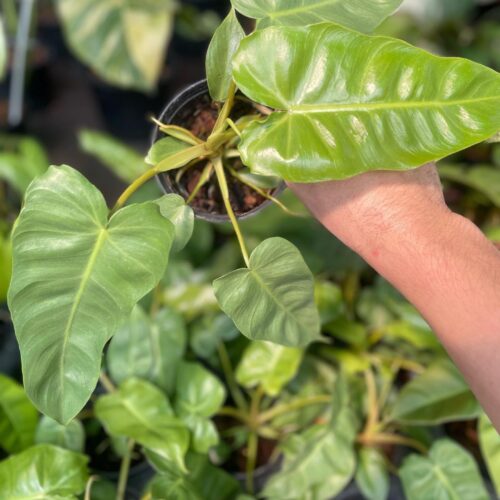
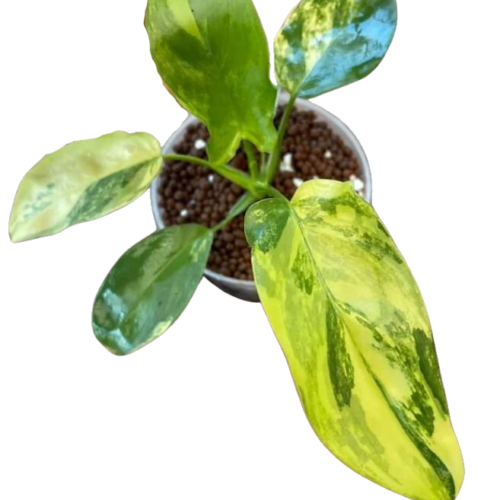
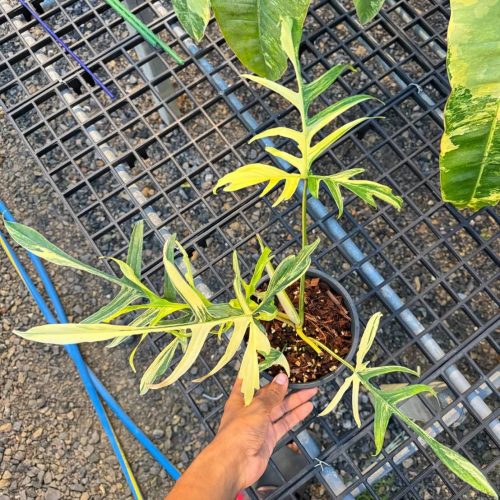
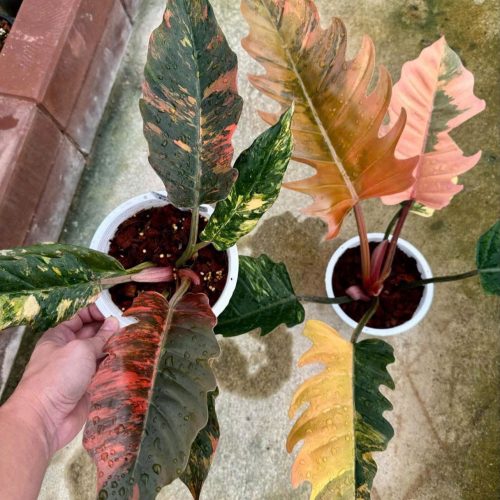
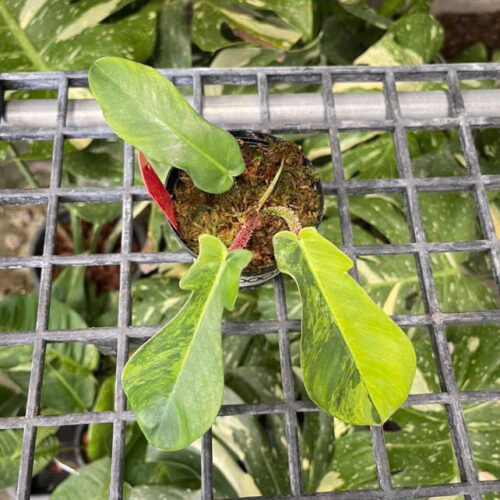
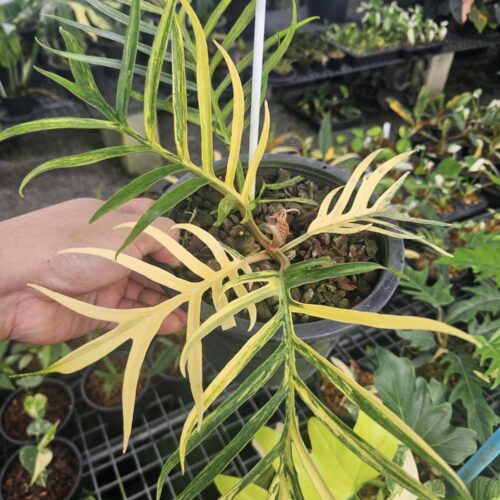
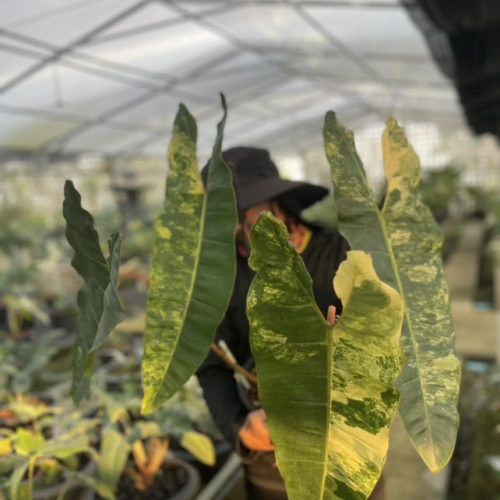
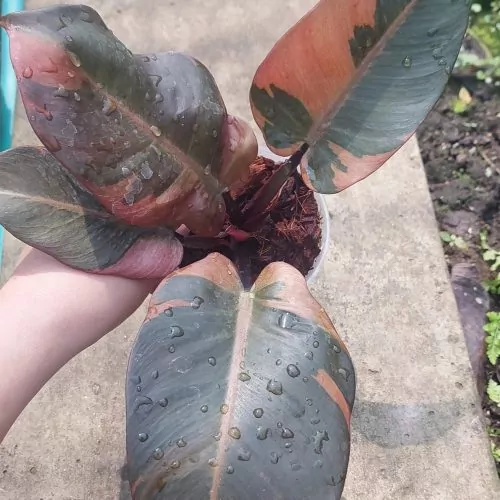
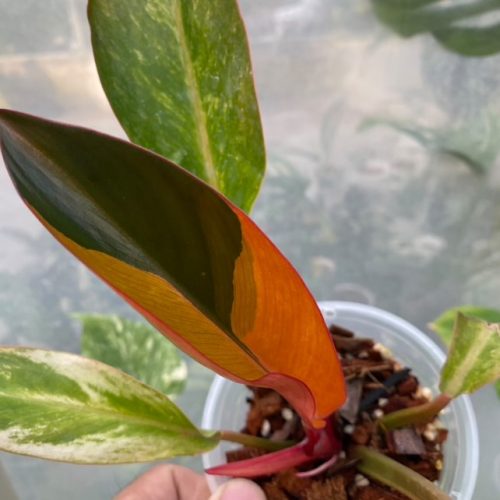
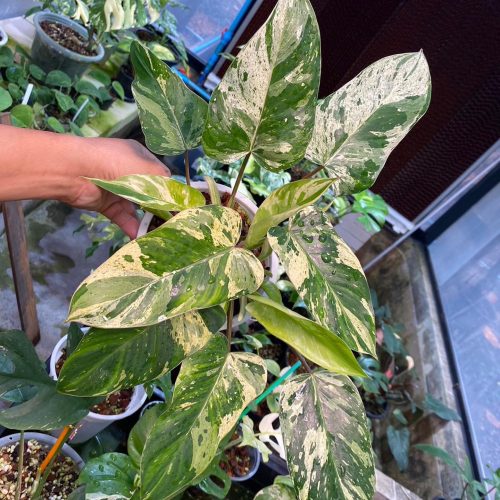
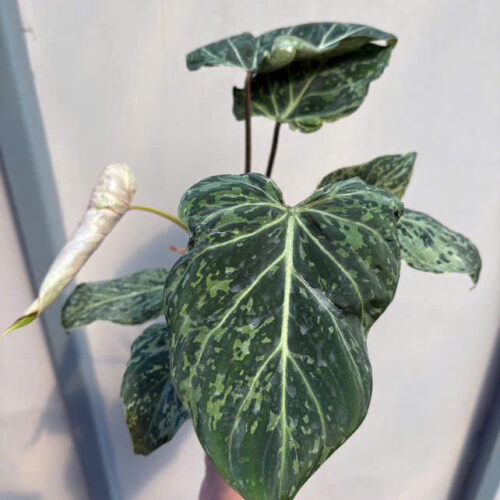
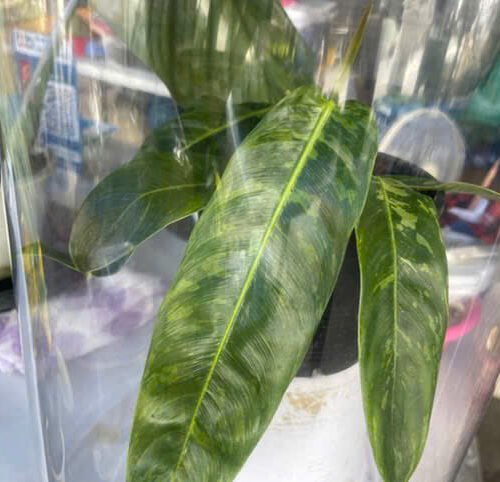
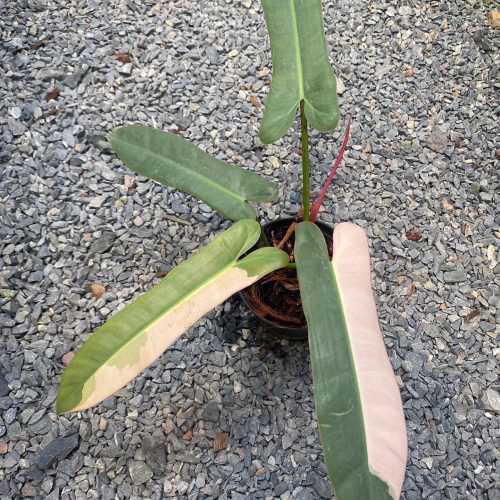
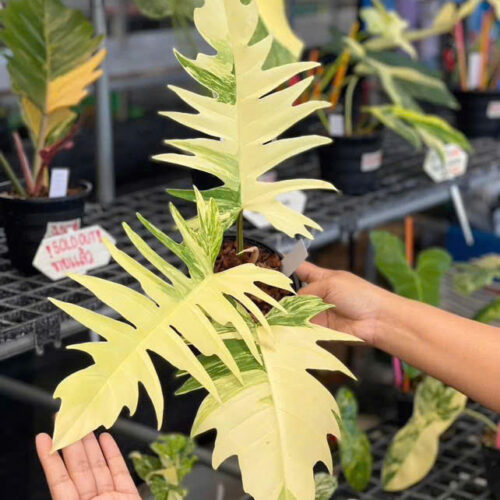
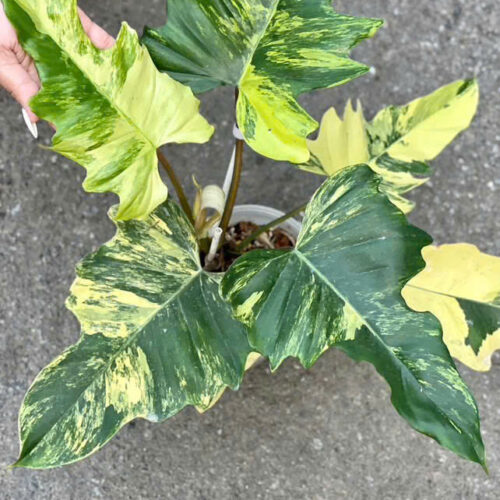
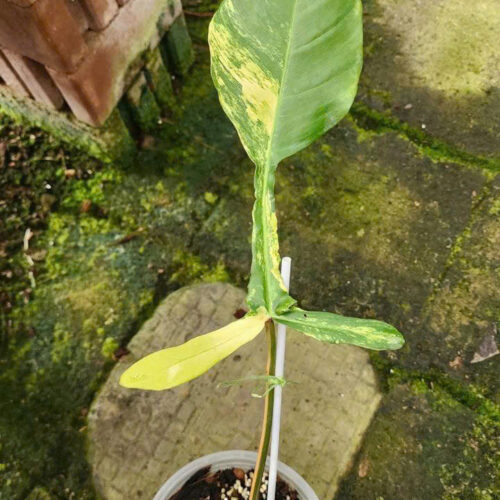
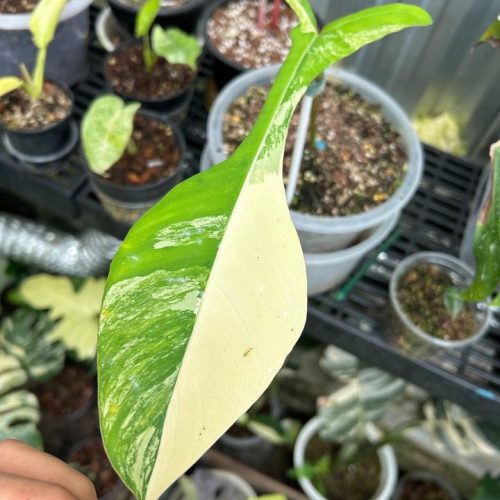
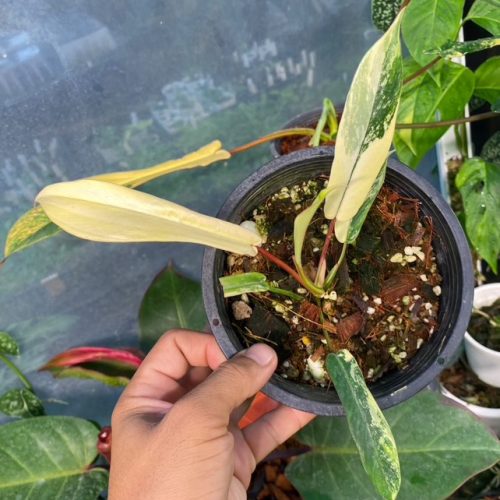
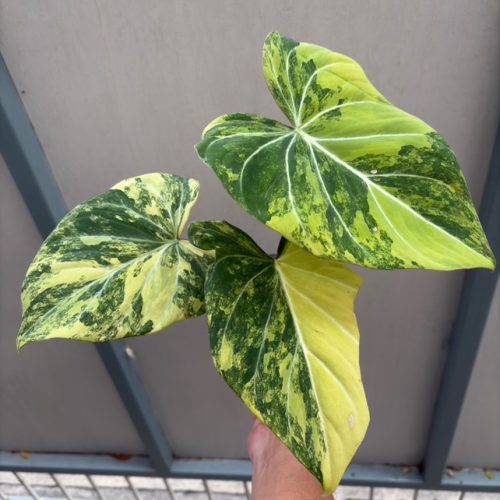
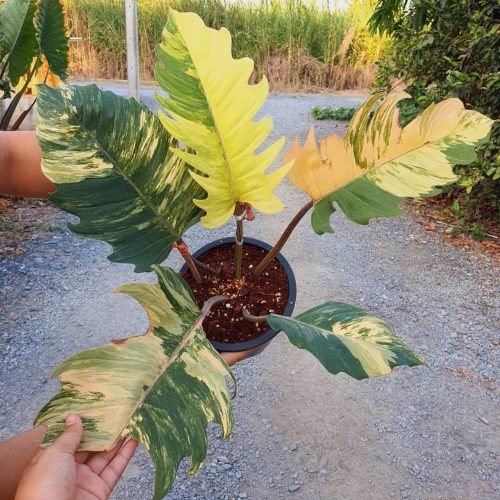
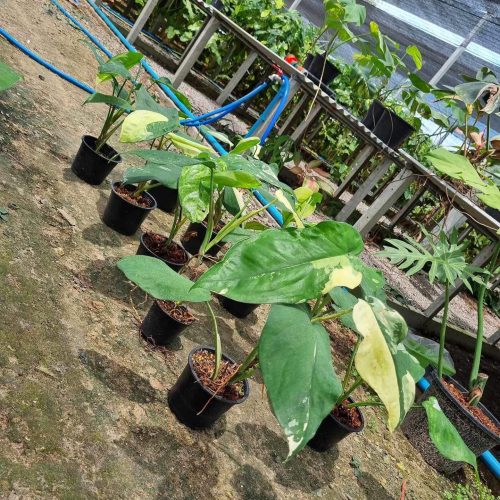
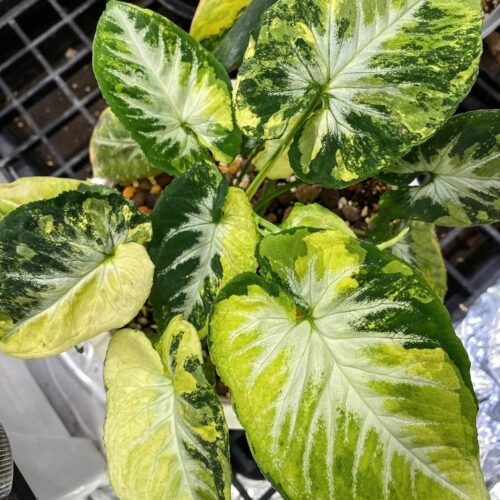
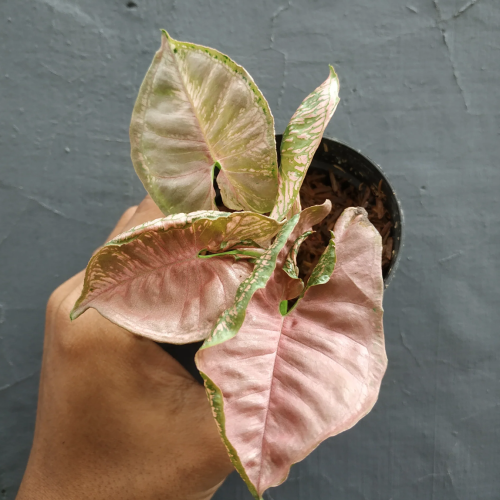
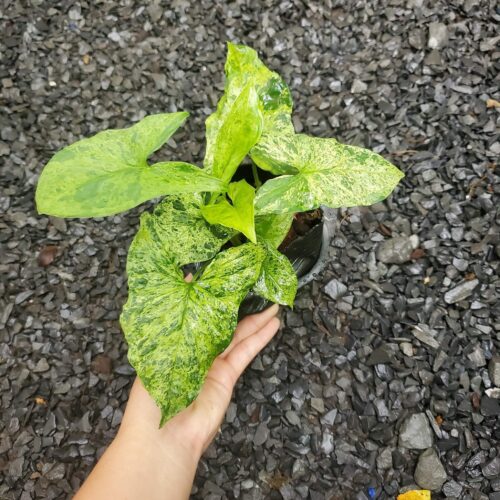
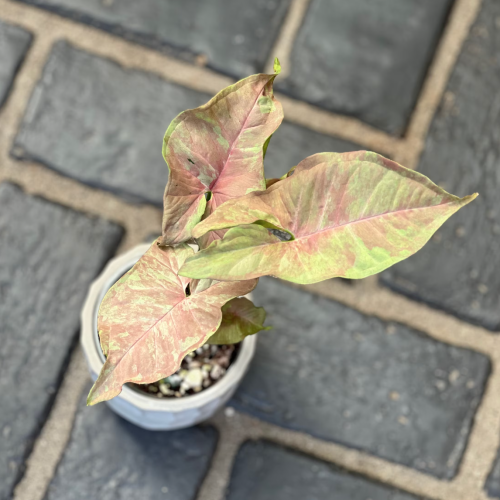
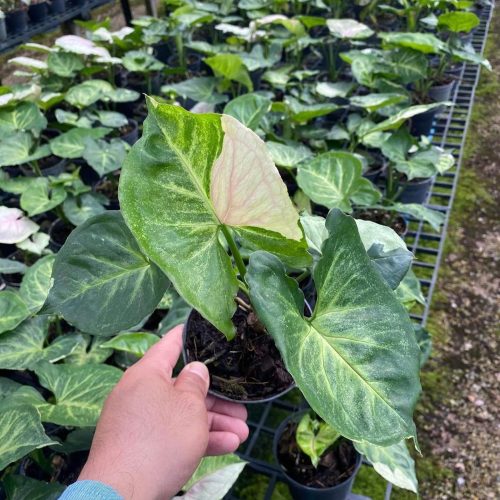
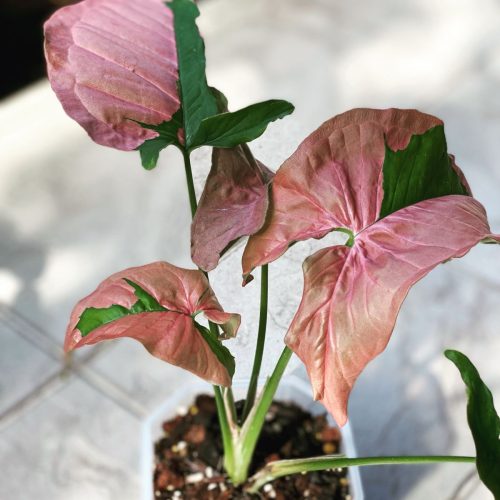


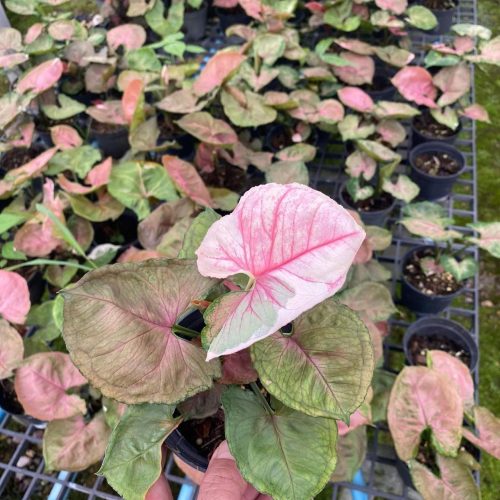
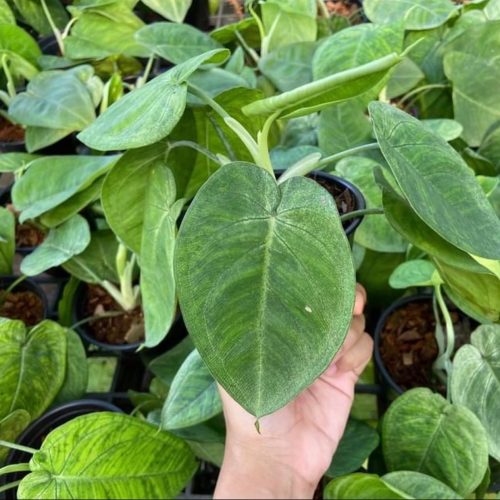
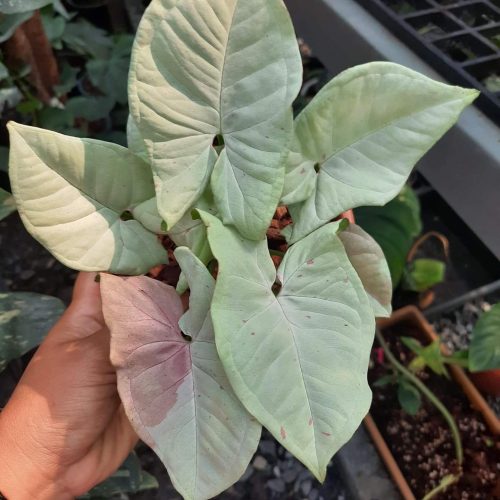

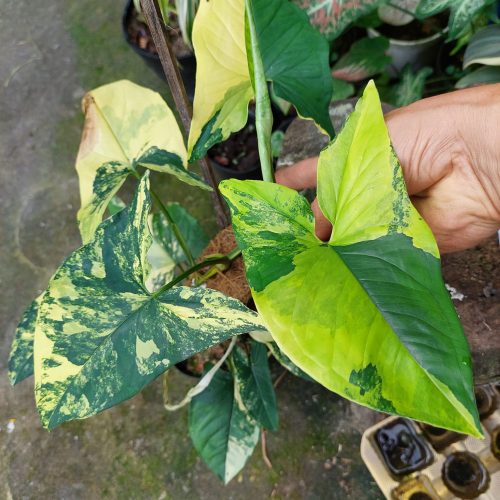
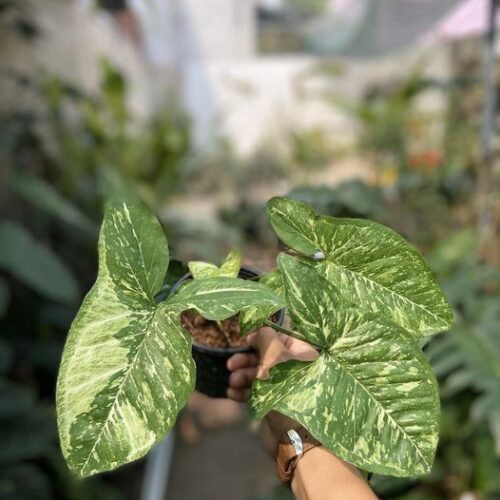
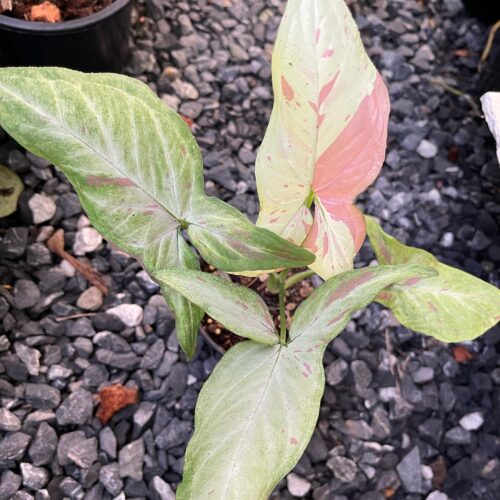
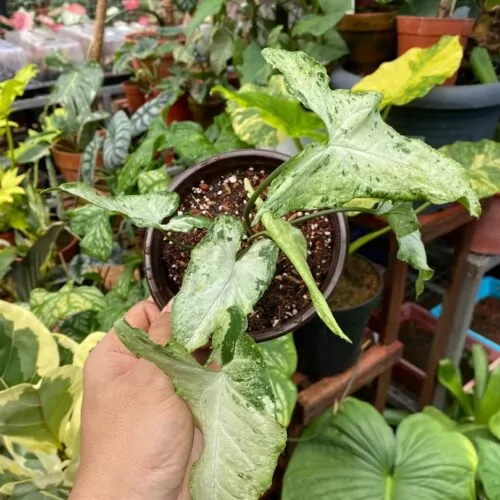
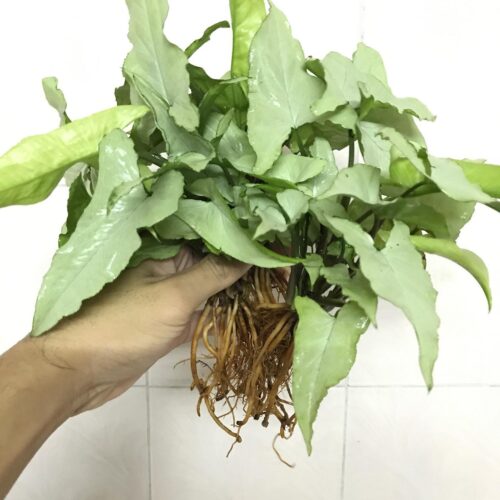
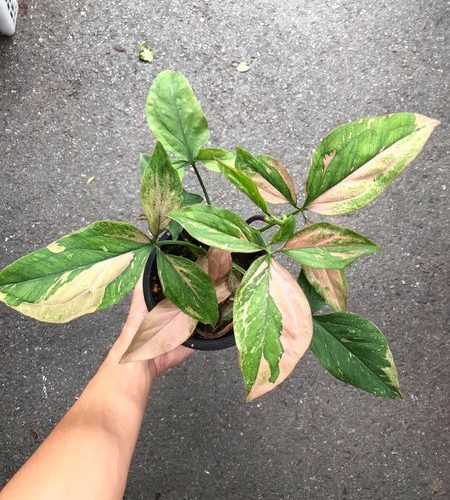
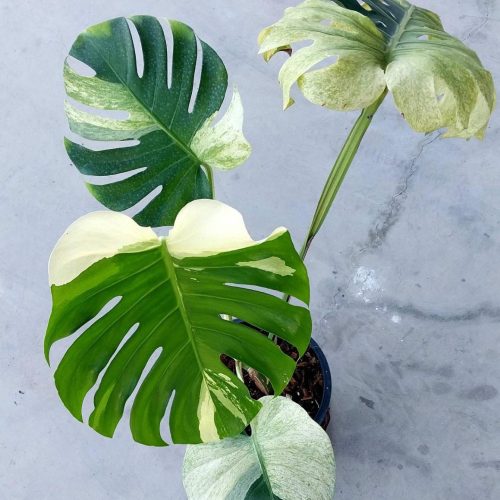
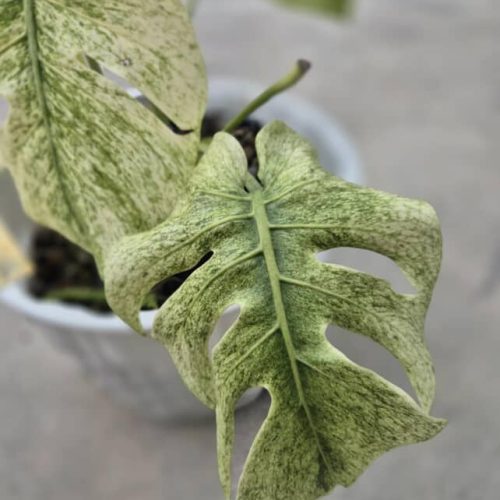
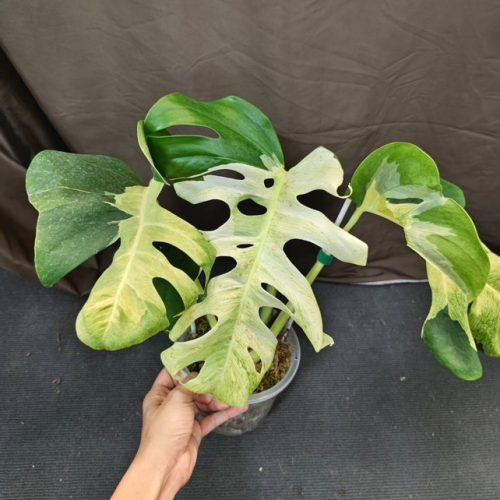
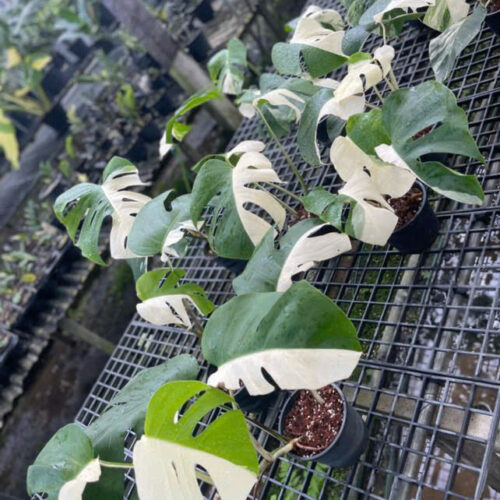


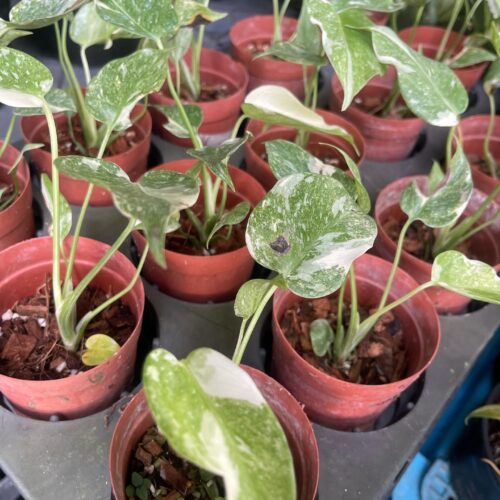
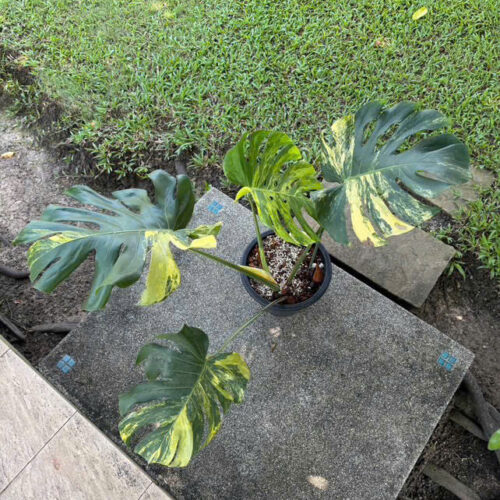
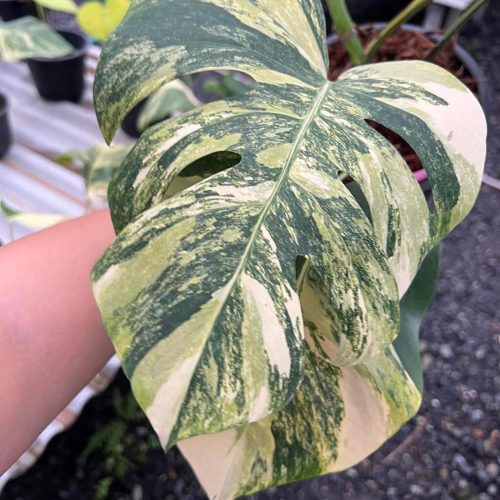
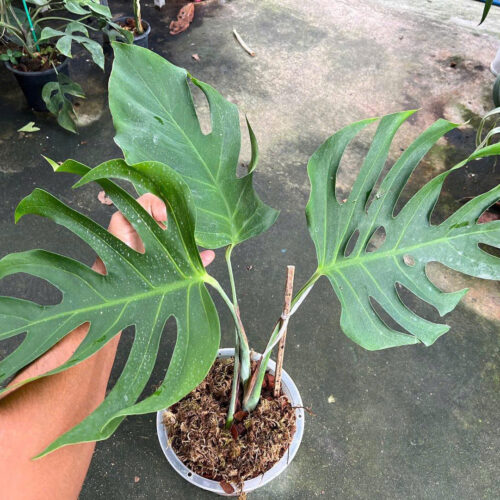


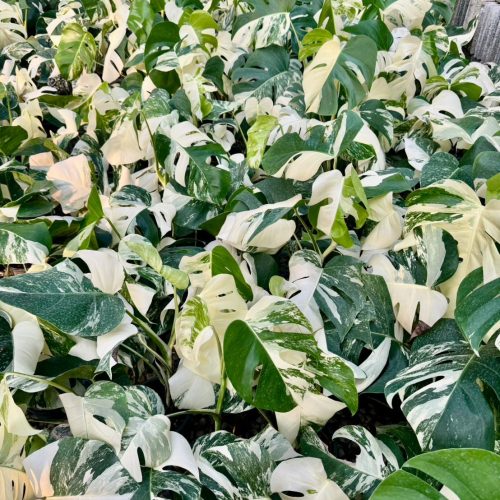
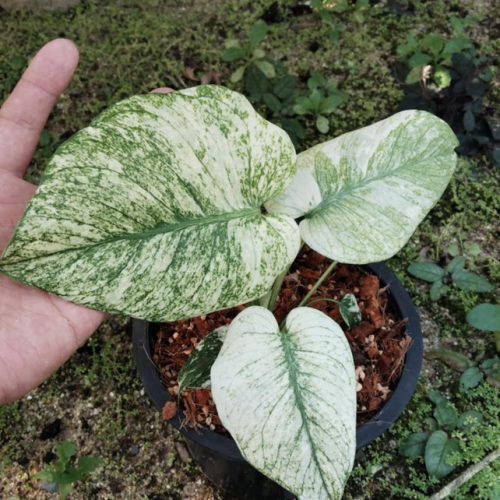
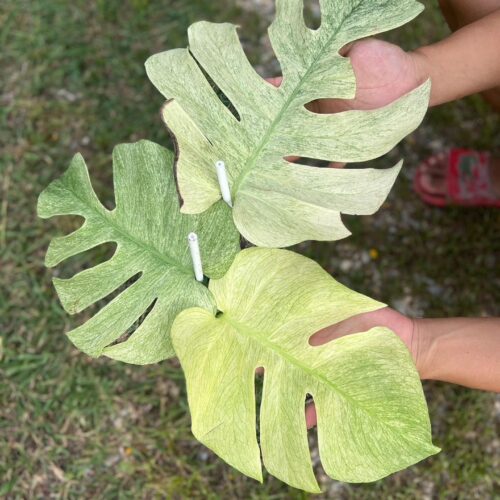

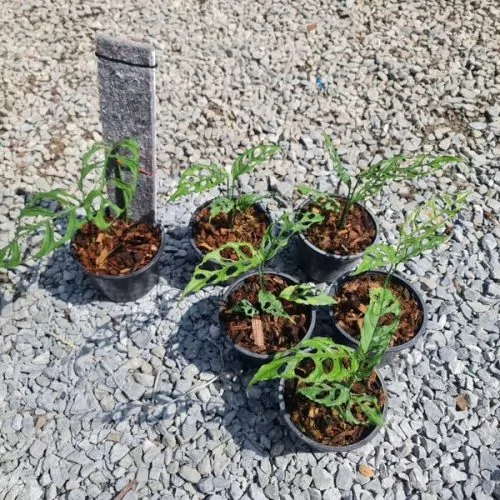
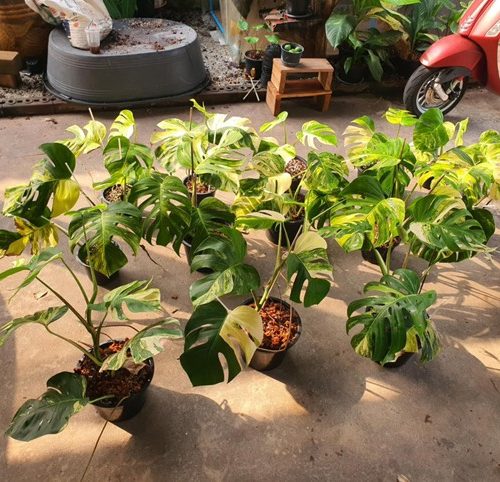

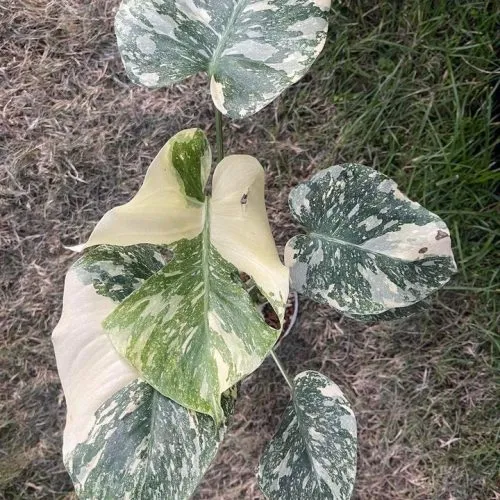

1 thought on “How long does a Swiss cheese plant live?”